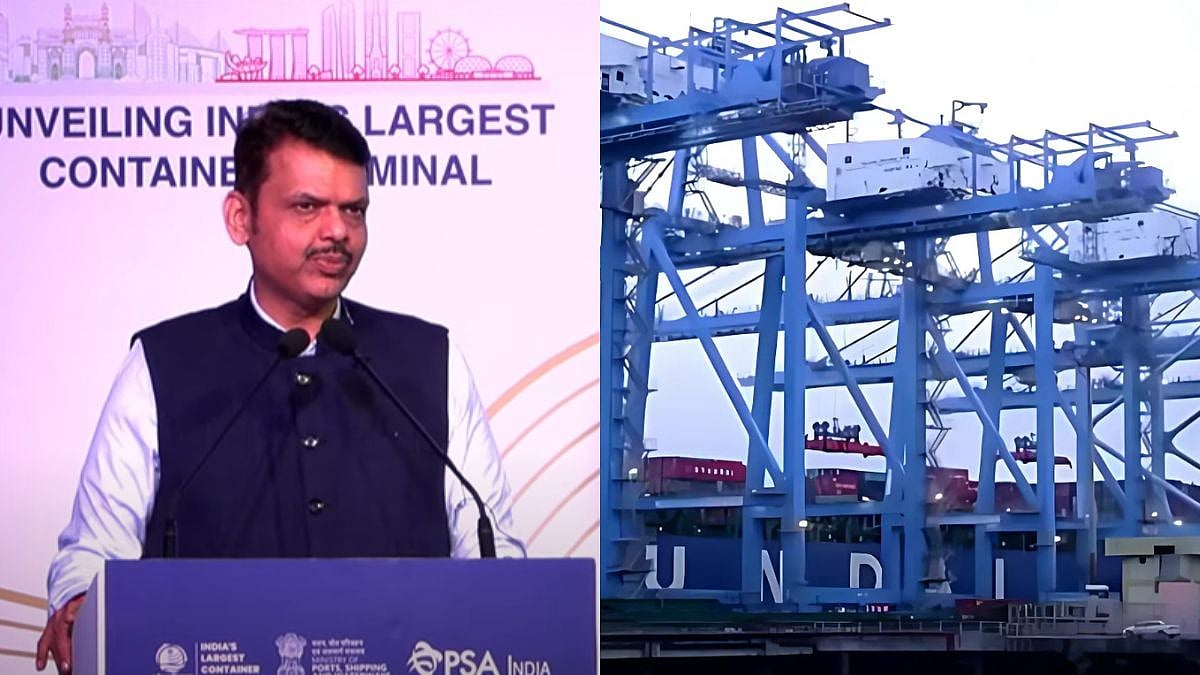Navi Mumbai: In a significant milestone for India's maritime industry, Prime Minister Narendra Modi and Singapore's Prime Minister Lawrence Wong jointly inaugurated the country's largest container cargo terminal at Jawaharlal Nehru Port Authority (JNPA) in Uran, Maharashtra.
The container cargo terminal, developed with an investment of $1.3 billion by the Port of Singapore Authority (PSA International), boasts a capacity of 4.8 million TEUs and features the longest wharf in the country at 2,000 meters.
Maharashtra Chief Minister Devendra Fadnavis expressed his excitement, stating, "Today is a very historic day... Maharashtra will play an important role in the business of the world." With this inauguration, Maharashtra has surpassed Gujarat's capacity of 8.2 million TEU, reaching 10 million TEU and solidifying its position as the leading state in container handling capacity.
The terminal is expected to significantly enhance India's trade efficiency and global connectivity. CM Fadnavis highlighted the importance of the Vadhavan Port, stating, "The port of Vadhavan will keep Maharashtra ahead of any other state by 20 years."
Once completed, the Vadhavan Port will catapult Maharashtra to the forefront of maritime business globally, generating substantial employment opportunities and stimulating economic growth.
The development of the JNPA terminal and the Vadhavan Port project underscores Maharashtra's commitment to becoming a trillion-dollar economy. The state government has emphasized sustainable development, with plans to double its power generation by 2030 while ensuring 52% comes from renewable sources.

In addition to the maritime sector, Maharashtra is also witnessing significant growth in other industries. The state has been at the forefront of tax collection since the introduction of the Goods and Services Tax (GST), with CM Fadnavis praising the GST Council's second-generation reforms for reducing the tax burden on consumers and boosting economic growth.
"The Prime Minister has boldly given second-generation reforms to the country," Fadnavis said, highlighting the positive impact on trade, demand, production, and employment.








